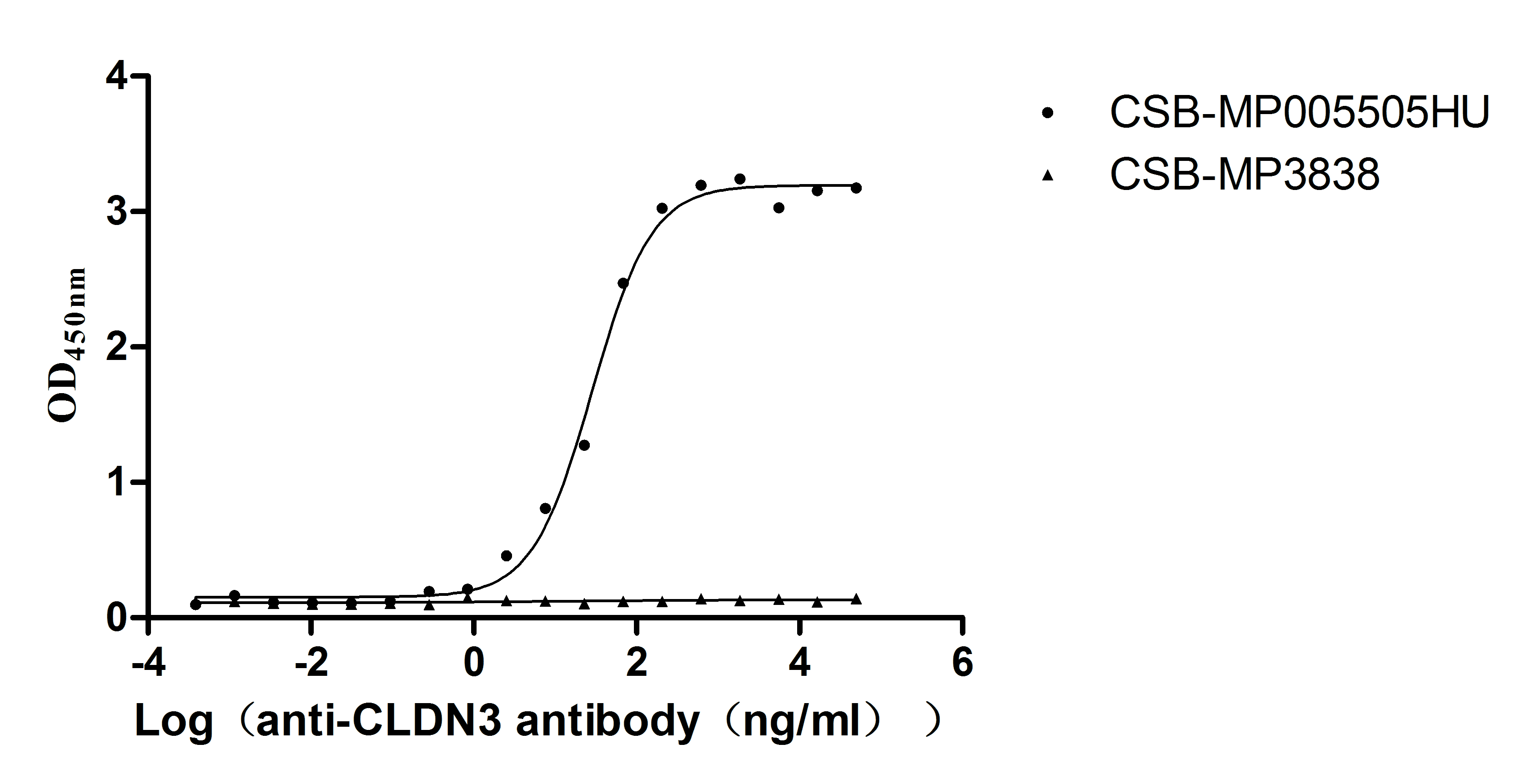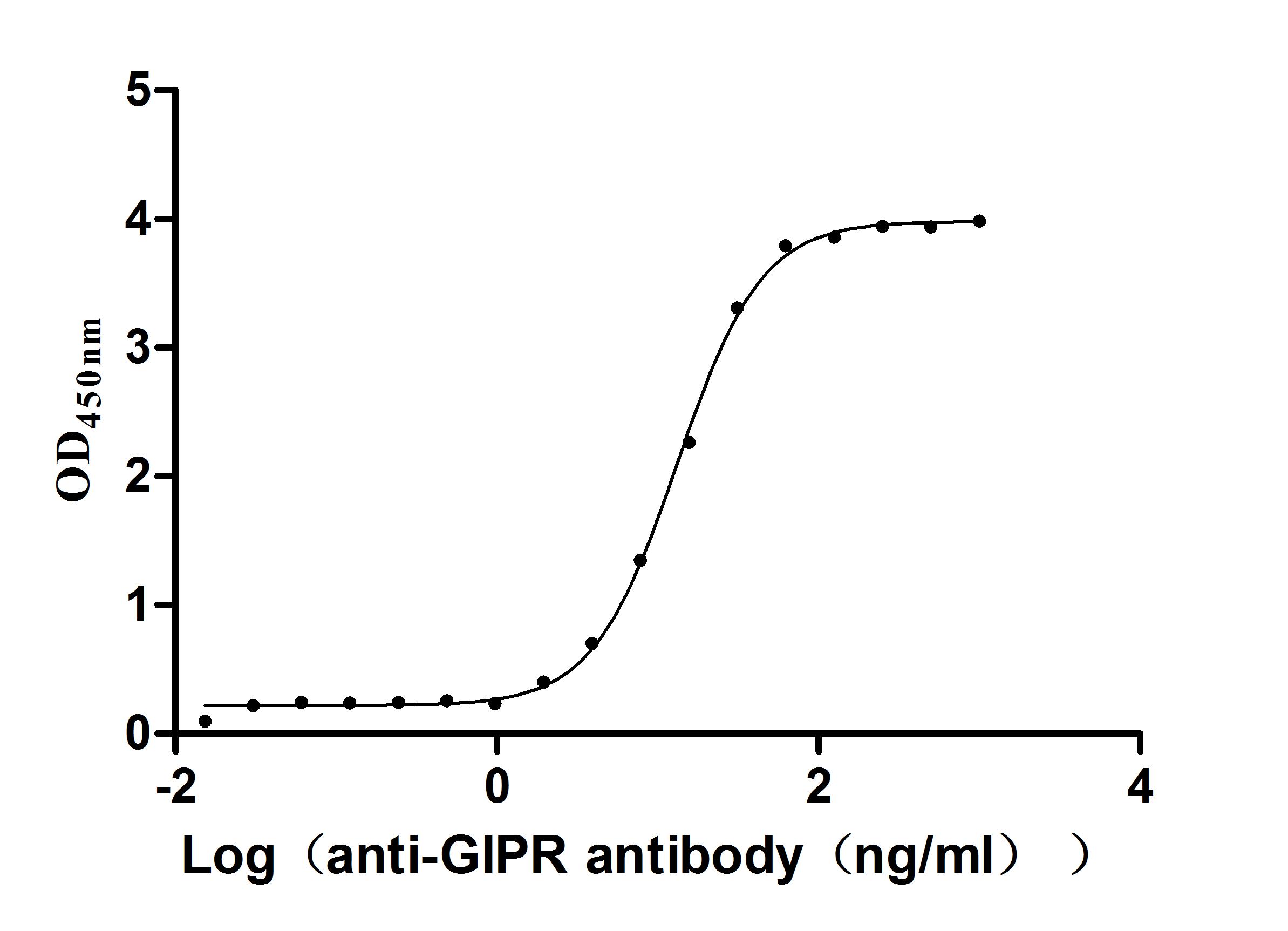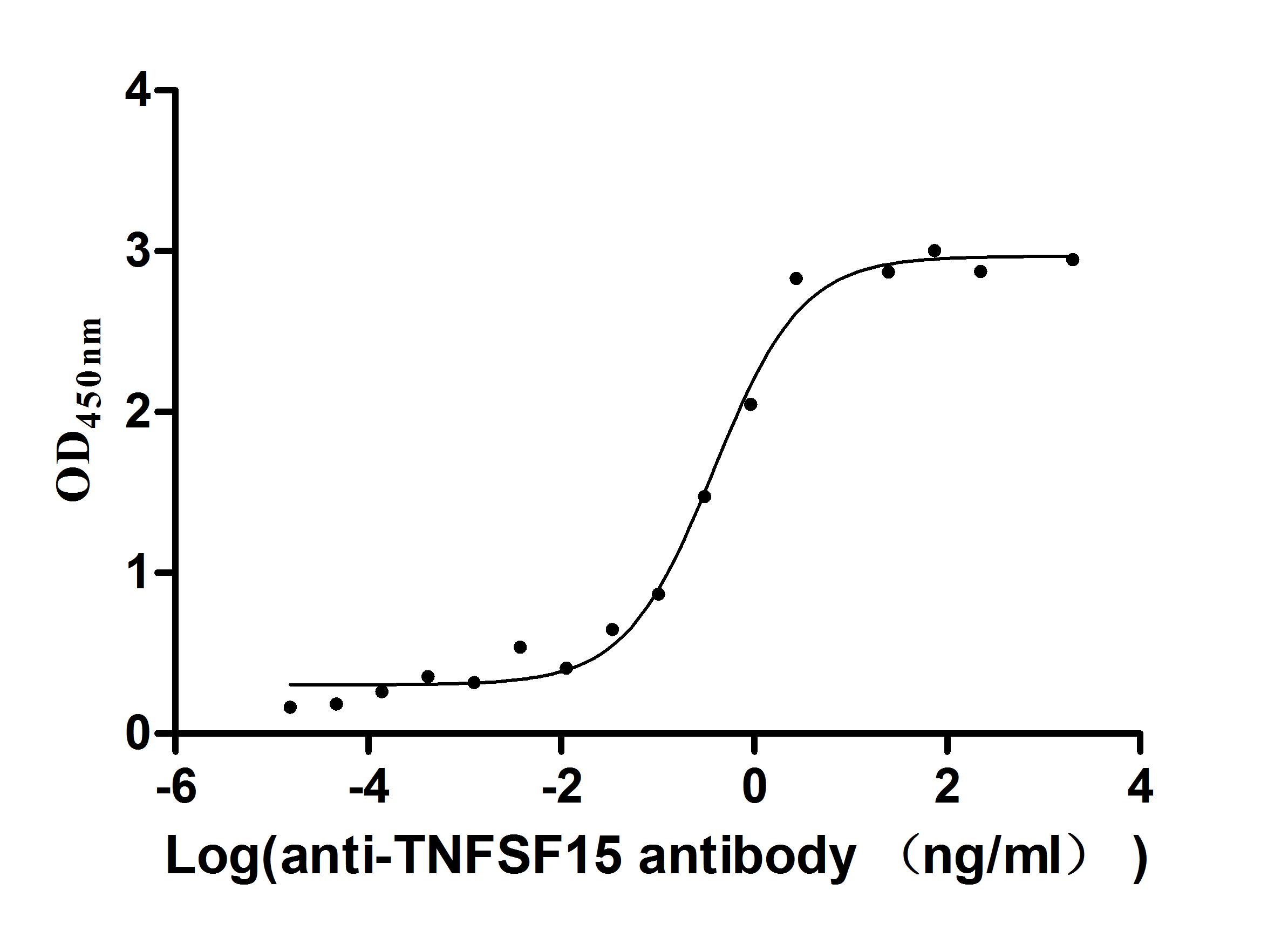Recombinant Human Three prime repair exonuclease 1 (TREX1), partial
-
中文名称:人TREX1重组蛋白
-
货号:CSB-EP865133HU1
-
规格:¥1836
-
图片:
-
其他:
产品详情
-
纯度:Greater than 85% as determined by SDS-PAGE.
-
基因名:TREX1
-
Uniprot No.:
-
别名:TREX1; Three-prime repair exonuclease 1; EC 3.1.11.2; 3'-5' exonuclease TREX1; Deoxyribonuclease III; DNase III
-
种属:Homo sapiens (Human)
-
蛋白长度:Partial
-
来源:E.coli
-
分子量:32.7 kDa
-
表达区域:1-242aa
-
氨基酸序列MGPGARRQGRIVQGRPEMCFCPPPTPLPPLRILTLGTHTPTPCSSPGSAAGTYPTMGSQALPPGPMQTLIFFDMEATGLPFSQPKVTELCLLAVHRCALESPPTSQGPPPTVPPPPRVVDKLSLCVAPGKACSPAASEITGLSTAVLAAHGRQCFDDNLANLLLAFLRRQPQPWCLVAHNGDRYDFPLLQAELAMLGLTSALDGAFCVDSITALKALERASSPSEHGPRKSYSLGSIYTRLY
Note: The complete sequence including tag sequence, target protein sequence and linker sequence could be provided upon request. -
蛋白标签:N-terminal 10xHis-tagged and C-terminal Myc-tagged
-
产品提供形式:Liquid or Lyophilized powder
Note: We will preferentially ship the format that we have in stock, however, if you have any special requirement for the format, please remark your requirement when placing the order, we will prepare according to your demand. -
缓冲液:Tris-based buffer,50% glycerol
-
储存条件:Store at -20°C/-80°C upon receipt, aliquoting is necessary for mutiple use. Avoid repeated freeze-thaw cycles.
-
保质期:The shelf life is related to many factors, storage state, buffer ingredients, storage temperature and the stability of the protein itself.
Generally, the shelf life of liquid form is 6 months at -20°C/-80°C. The shelf life of lyophilized form is 12 months at -20°C/-80°C. -
货期:Basically, we can dispatch the products out in 1-3 working days after receiving your orders. Delivery time may differ from different purchasing way or location, please kindly consult your local distributors for specific delivery time.Note: All of our proteins are default shipped with normal blue ice packs, if you request to ship with dry ice, please communicate with us in advance and extra fees will be charged.
-
注意事项:Repeated freezing and thawing is not recommended. Store working aliquots at 4°C for up to one week.
-
产品描述:The gene fragment corresponding to the 1-242aa of the human TREX1 protein was synthesized, with appropriate restriction sites suitable for in-frame cloning into an expression vector, with N-terminal 10xHis tag and C-terminal Myc tag. The E.coli was transformed with the expression vector, and the clone was expressed upon certain induction. After the induced cell centrifugation, the recombinant protein was purified from the cell extract and presented as N-terminal 10xHis-tagged and C-terminal Myc-tagged fusion. This recombinant human TREX1 protein's purity is greater than 85% assayed by SDS-PAGE...显示更多
-
Datasheet & COA:Please contact us to get it.
相关产品
靶点详情
-
功能:Major cellular 3'-to-5' DNA exonuclease which digests single-stranded DNA (ssDNA) and double-stranded DNA (dsDNA) with mismatched 3' termini. Prevents cell-intrinsic initiation of autoimmunity. Acts by metabolizing DNA fragments from endogenous retroelements, including L1, LTR and SINE elements. Unless degraded, these DNA fragments accumulate in the cytosol and activate the IFN-stimulatory DNA (ISD) response and innate immune signaling. Prevents chronic ATM-dependent checkpoint activation, by processing ssDNA polynucleotide species arising from ...显示更多
-
基因功能参考文献:
- data identifies miR-103 regulation of TREX1 as a potent modulator of the tumour microenvironment. PMID: 27886180
- Thus, the intracellular level of TREX1 pivotally modulates innate immune induction by HIV-1. Partial HIV-1 genomes are the TREX1 target and are sensed by cGAS. PMID: 29769349
- TREX1-deficient neurons also exhibited increased apoptosis and formed three-dimensional cortical organoids of reduced size. PMID: 28803918
- Homozygote R114C mutation in TREX1 gene was shown in two siblings, one with chilblains and another with chilblains accompanied with cerebral vasculitis. PMID: 28919362
- TREX1 frame-shift mutations induce autoantibodies against mostly non-nuclear antigens, patients carrying these mutations are likely be ANA negative PMID: 28325644
- The activation of interferon-induced genes is controlled by the JAK-STAT system; therefore, JAK inhibitors were successfully used in several cases to treat type 1 interferonopathies. Experience with this treatment modality is continuously growing. PMID: 28389709
- TheTREX1 and STING, which are opposing regulators of the cytosolic DNA-sensing pathway. PMID: 28475463
- the cell-cycle-dependent post-translation modification of TREX1 regulates its interaction with OST. PMID: 28297665
- The effect of topical TREX1 knockdown and local interferon production on HIV transmission in human cervicovaginal explants and humanized mice, is reported. PMID: 27184854
- data do not support the concept of retroelement-derived cDNA as key triggers of systemic autoimmunity in Trex1-deficient humans and mice PMID: 28835460
- Aicardi-Goutieres syndrome protein TREX1 suppresses L1 and maintains genome integrity through exonuclease-independent ORF1p depletion. PMID: 28334850
- Analysis of mRNA expression profiles in breast tumors demonstrates that those with lower Trex1 and higher BLM and EXO1 expression levels are associated with poor prognosis PMID: 28279982
- showed that patients with SSc or SLE have AAb against EphB2, a protein involved in angiogenesis, and THEX1, a 3'-5' exoribonuclease involved in histone mRNA degradation. PMID: 27617966
- The expression of TREX1 was closely related to the cytobiology characteristics of osteosarcoma stem cell. PMID: 27881153
- Heterozygous mutations in TREX1 were reported in SLE patients. PMID: 26150267
- synonymous variant p.(Tyr177) associated with an increased risk of systemic scleroderma; association strongest in patients with limited cutaneous scleroderma, in particular in those with more severe digital vascular disease PMID: 27574969
- This study reviewed that Neurologic Phenotypes Associated with Mutations in TREX1 in patients with Aicardi-Goutieres Syndrome. PMID: 27643693
- Aicardie-Goutieres syndrome is described in a patient with a homozygous p.Arg114His mutation in the TREX1 gene. PMID: 28089741
- CDK11 was found associated with the TREX/THOC, which recruited this kinase to DNA. Once at the viral genome, CDK11 phosphorylated serines at position 2 in the CTD of RNAPII, which increased levels of cleavage and polyadenylation factors at the HIV 3' end. In its absence, cleavage of viral transcripts was greatly attenuated. PMID: 26567509
- Aicardi-Goutieres syndrome 1 is caused by mutations in the three prime repair exonuclease 1 gene (TREX1, MIM 606609). PMID: 25906927
- Functional analysis of retinal vasculopathy with cerebral leukodystrophy-associated TREX1 T270 frameshift-mutated fibroblasts showed a prevalent localization of the protein in the cytosol, rather than in the perinuclear region PMID: 25213617
- Here we briefly describe the human diseases so-far associated with mutations in TREX1, which include Aicardi-Goutieres syndrome, familial chilblain lupus, systemic lupus erythematosus and retinal vasculopathy with cerebral leukodystrophy PMID: 25731743
- Studies indicate that the biosensing strategy is based on the protection of DNA duplex from exonuclease III (Exo III)-mediated digestion by specific binding of estrogen receptor (ER) to its DNA response element. PMID: 23681011
- The s observed that the minor allele of SNP rs3135941 in Trex1 is associated with faster HIV-1 disease progression. PMID: 25162766
- Unlike previously reported TREX1 mutations, which affect Exo I or Exo II domains, the mutation presented here alters the Exo III domain, suggesting a role of mutations within the catalytic Exo domains in the pathogenesis of familial chilblain lupus PMID: 25517357
- Data suggest that the 3'-5' DNA exonuclease TREX1 may contribute to stabilization of poly(ADP-ribose) polymerase-1 (PARP1) levels in the DNA damage response and its activity. PMID: 25278026
- knocking out the DNA sensor cyclic GMP-AMP synthase completely abrogates spontaneous induction of IFN-stimulated genes in TREX1-deficient cells. PMID: 24813208
- Data indicate that the single nucleotide polymorphism rs3135945 was significantly associated with HIV infection, emphasizing the involvement of TREX-1 in the anti-HIV response. PMID: 23773365
- This study contributes to the demonstration that TREX1 is involved in autoimmune diseases and proposes that the spectrum of involved autoimmune diseases can be broader and includes systemic sclerosis . PMID: 24224166
- Spontaneous type I INF dependent cutaneous pathology in TREX1 deficiency illustrates common pathogenetic pathway in chilblain lupus. PMID: 24270665
- These data provide compelling evidence for the required TREX1 dimeric structure for full catalytic function. PMID: 24616097
- A nationwide survey of Aicardi-Goutieres syndrome patients identifies a strong association between dominant TREX1 mutations and chilblain lesions in Japan. PMID: 24300241
- Screening of our patient cohort yielded heterozygous TREX1 mutations in two patients with early-onset cerebrovascular disease PMID: 23881107
- TREX1 mutation is not a common cause of hereditary small vessel diseases of the brain PMID: 23602593
- TREX1 post-translational modification indicates an additional mechanism by which mutations disrupt TREX1 biology, leading to human autoimmune disease. PMID: 23979357
- TREX1 gene variants confer an increased risk for the development of systemic lupus erythematosus. PMID: 24034389
- TREX1 knockdown resulted in enhanced cell death following nimustine. PMID: 23578789
- Aicardi-Goutieres syndrome and familial chilblain lupus can be caused by a heterozygous TREX1 p.Asp18Asn mutation. PMID: 22829693
- Despite its central role in the HIV-1 infection process, genetic diversity at TREX1 is not a major determinant of susceptibility to infection in humans. PMID: 22526516
- The structures of the mutant TREX1 proteins provide insight into the dysfunction relating to human disease. PMID: 22071149
- TREX1 residues in one protomer contributing to DNA degradation catalyzed in the opposing protomer and help to explain the dimeric TREX1 structure required for full catalytic competency. PMID: 21937424
- failure to degrade genomic dsDNA is a principal pathway of immune activation in TREX1-mediated autoimmune disease. PMID: 21808053
- data confirm and expand previous reports and provide additional support for the involvement of TREX1 in lupus pathogenesis PMID: 21270825
- A single case of a heterozygous TREX1 mutation has been associated with Aicardi-Goutieres syndrome, an encephalopathy often resembling congenital infection. PMID: 20799324
- TREX1 bound to cytosolic HIV DNA and digested excess HIV DNA that would otherwise activate interferon expression via a pathway dependent on the kinase TBK1, the adaptor STING and the transcription factor IRF3 PMID: 20871604
- The deficiency of Trex-1 in rheumatoid arthritis synovial fibroblasts allows a longer half-life of gene products encoded by active endogenous L1 retrotransposons. PMID: 20496420
- TREX1 mutations do not play a role in the pathogenesis of Sporadic inclusion body myositis. PMID: 20192983
- TREX1 may act in degrading DNA in all cell types undergoing a dying process before phagocytosis occurs. PMID: 19617005
- TREX1, encoding the major mammalian 3' --> 5' DNA exonuclease, is the AGS1 gene, and AGS-causing mutations result in abrogation of TREX1 enzyme activity. PMID: 16845398
- Heterozygous mutations in TREX1 cause familial chilblain lupus and dominant Aicardi-Goutieres syndrome. PMID: 17357087
收起更多
-
相关疾病:Aicardi-Goutieres syndrome 1 (AGS1); Systemic lupus erythematosus (SLE); Chilblain lupus 1 (CHBL1); Vasculopathy, retinal, with cerebral leukodystrophy (RVCL)
-
亚细胞定位:Nucleus. Cytoplasm, cytosol. Endoplasmic reticulum membrane; Peripheral membrane protein.
-
蛋白家族:Exonuclease superfamily, TREX family
-
组织特异性:Detected in thymus, spleen, liver, brain, heart, small intestine and colon.
-
数据库链接:
HGNC: 12269
OMIM: 152700
KEGG: hsa:11277
STRING: 9606.ENSP00000390478
UniGene: Hs.707026

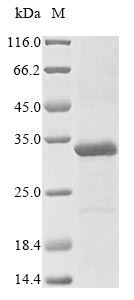

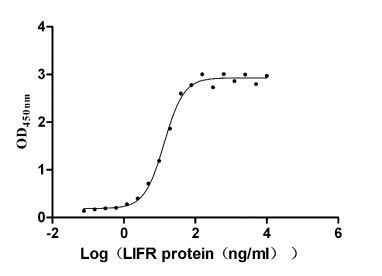
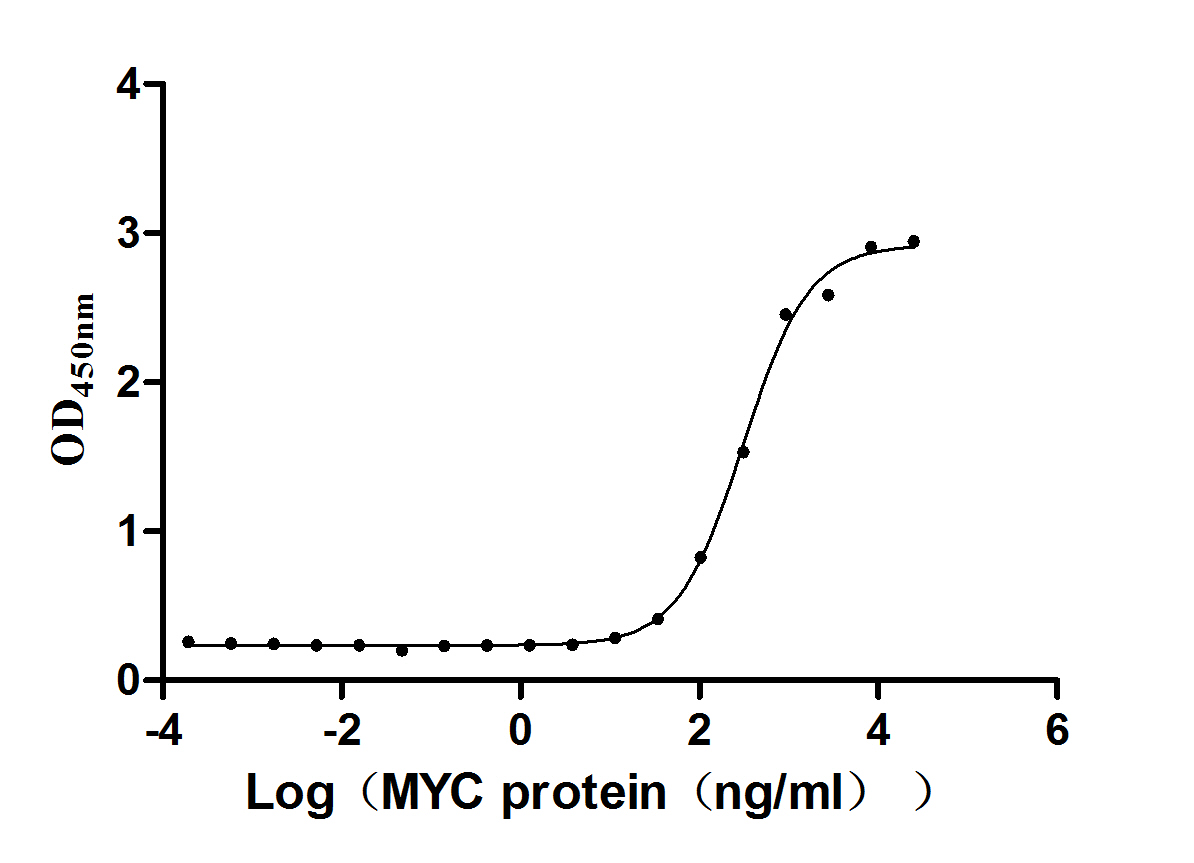
-AC1.jpg)
